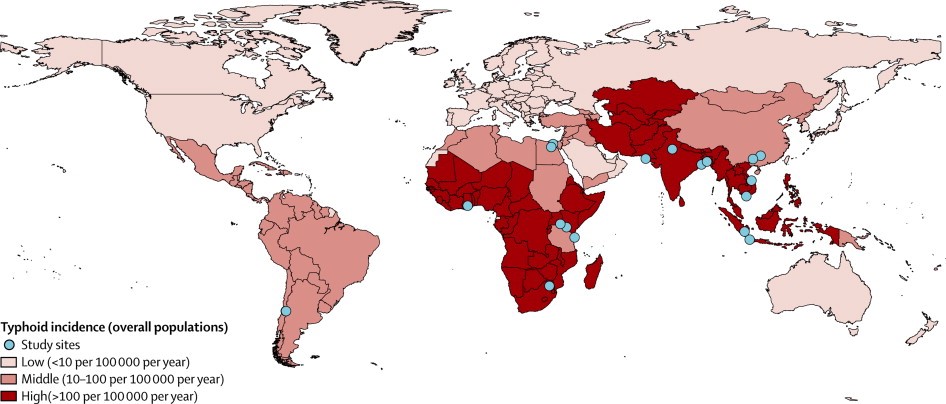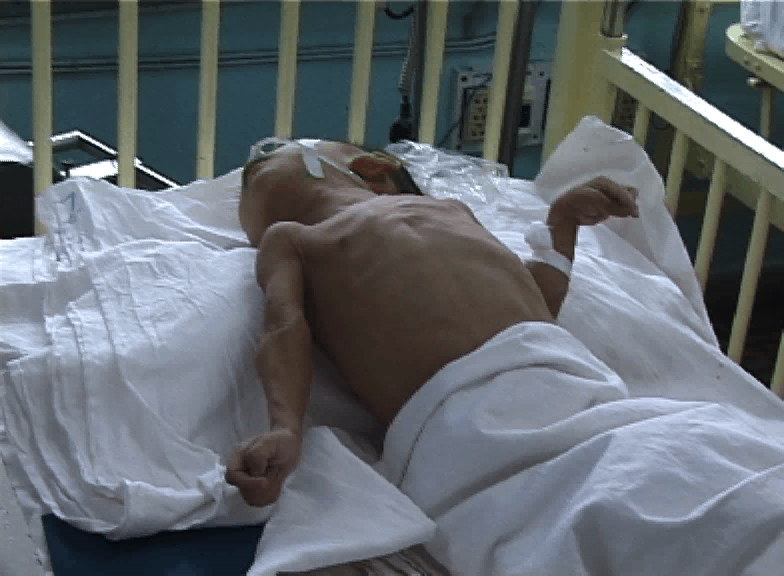Stay Healthy When You Travel

Who does not look forward to travelling overseas? It is fun and a great way to spend quality time with our family and Friends. Some of our most pleasurable and memorable experiences occur when we travel. These days - international travel has become much more accesible. In 2015 – the number of international tourist arrivals in the world was close to 1.2 billion!
Unfortunately – there are health risks associated with travelling. International travellers can get sick. When you travel overseas - you are exposed to infectious agents that your body may not be prepared to handle. Travellers may therefore encounter sudden and severe illness. This will not only ruin your holiday. This may result in serious health consequences.
The risk of getting sick depends on which country you visit. 65% of travelers to the developing world self-report a health problem during their trip. Fortunately, most are mild and self-limited problems like diarrhea, respiratory infections and skin disorders. 8% of these travelers are sufficiently ill to require medical attention2.
It is highly recommended that travellers consult their physician 4-6 weeks before travelling. Most countries have travel clinics that can give good advice and if necessary – provide the required vaccinations and protective medications3.
Doctors use the geographical patterns of illnesses to determine whether it is recommended to take a vaccine for specific illnesses. Usually – they will recommend vaccinating against influenza, hepatitis A/B and typhoid fever. In some countries – they may recommend vaccinating against Japanese encephalitis, yellow fever and rabies. The link below provide helpful advice on what vaccinations are recommended when visiting specific countries.
https://wwwnc.cdc.gov/travel/destinations/list
Doctors may assume that you are protected from diseases through vaccines which are routinely given during childhood i.e. diphtheria, measles, mumps and rubella, pertussis, poliomyelitis and tetanus. If you have not received vaccination against these illnesses – you should alert your doctor or travel clinic.
Traveller’s Diarrheoa

Without doubt - the most predictable ailment to affect travellers is travellers’ diarrhoea (TD). Between 15-20 million people are believed to get TD every year4. Depending on the country you visit – the risk of TD may be 30-70%6. The risk of TD is high when visiting countries where hygiene and sanitation are inadequate and clean wáter is not easily available.
It is important to be aware that diarrhea is common in developing countries. In fact – more than 2 million people die from diarrhea disease every year in developing countries – mostly children5. If you are travelling to such countries, you are urged to exercise strict food hygiene7. No unbottled water or iced drinks. No unpasteurized dairy products. No half-boiled or runny eggs, No salad or uncooked vegetables. No fruits – unless you peel them yourself. No raw or undercooked meat – particularly seafood. No food from street vendors. No food served at room temperature. These precautions can be summarised in the mantra “Boil it, cook it, peel it or forget it!”.
Despite these precautions – studies show that the risk of getting sick from contaminated water or food is still significant6. Poor restaurant hygiene in developing countries probably present an insurmountable risk for many travellers.
Travellers’ diarrhoea can be caused by different infectious agents. The most common pathogen in TD though is the ETEC bacterium (Enterotoxigenic Escherichia coli). Travellers’ diarrhoea is usually self-limiting. Symptoms last for 3-4 days. But it may ruin your holiday6. A vaccine is available for ETEC-diarrhea if you prefer to protect yourself against it.
Typhoid Fever

Source: http://stylesatlife.com/articles/causes-and-symptoms-of-typhoid-fever/
Typhoid fever is a serious bacterial infection acquired from contaminated food or wáter. The causative organism is Salmonella typhi. 10-20% of infected people may die if the disease is untreated. 3-5% of infected people become life-long carriers of the disease8.
There are 21 million cases and 220,000 deaths attributed to typhoid fever every year9. Most of these cases occur in Asia. SE Asia and India are known for particularly high rates of typhoid fever.

Source: Lancet Global Health 2014; 2: e570–80
The predominant symptom of typhoid fever is persistent high fever (40-41°C) which may last 4 weeks. There will be flu-like symptoms, constipation/diarrhea and skin lesions. Patients with typhoid fever require appropriate antibiotic treatment.
Typoid fever do not only occur in poor and developing countries. They can also occur in modern cities like Singapore. Between 2007 and 2011, there are about 70-80 cases of typhoid fever being reported every year in Singapore10.
The same dietary precautions against TD are recommended for typhoid fever. Because the disease is potentially serious – doctors recommend routine vaccination against typhoid fever. Moreover – there are more and more cases of multi-antibiotic resistant strains of Typhoid infections. Fortunately, typhoid vaccination is very convenient and affordable11. You can be vaccinated via an intra-muscular injection or by taking capsules orally. Both forms of typhoid vaccination have equivalent efficacy.
Japanese Encephalitis

Source: Child with Japanese Encephalitis - Photo Lars Lindquist
Japanese Encephalitis (swelling of the brain) is a serious illness caused by the JE virus (JEV) which is spread by the Culex mosquito in Asia. 25% of affected people will die. Up to 30% will suffer long-term neurological or psychiatric symptoms12.
The JE virus belongs to the same family as the dengue, yellow fever and Zika viruses. There are 68,000 cases of JEV infections annually – most of these occuring in Asia13.
JE occurs rarely in Singapore. But it is prevalent in many Asian countries including Japan, Korea, China, Taiwan, Thailand, Vietnam and Malaysia. In an alarming study – 64% of mosquitoes tested in Pusan (South Korea) were found to carry the JE virus14.
In countries where JE is endemic – the disease is considered a paediatric disease. Children either get infected or become naturally immune. However – travellers to endemic countries can acquire JE at any age.
The best protection against JE is vaccination. Vaccination has reduced dramatically the incidence of JEV infections in countries with national immunisation programs. Many Asian countries have national immunisation programs against JE.
Since the disease can be severe and no treatment is available - travellers to JE endemic countries should discuss with their doctor or travel clinic about JE vaccination.
Travellers to endemic countries are recommended to have JE vaccination if they are visiting rural or agricultural áreas (rice fields, pig farms), participating in outdoor activities (camping, hiking, trekking, biking, fishing) or living in accomodation without air-conditioning or mosquito screens/nets.
Despite this guideline – it has been pointed out that 44% of JE cases occurred in travelers with <4 weeks travel and limited rural exposure16.
Travel Health Guidelines
As mentioned – it is highly recommended that you consult your doctor or a travel clinic before you travel. They will have important and helpful advice for you.
Travel health is more taking the recommended vaccines. Good general guidelines include the following3:
- Be careful what you eat and drink
- Use insect repellents and avoid being bitten by insects like mosquitoes, ticks, flies
- Wash your hands often with soap and water or alcohol-based hand sanitizer
- Don't touch animal, especially monkeys, dogs, and birds
It is important to point out that there are diseases for which no vaccines are available (e.g. e. malaria, dengue, Zika). There are also diseases with prolonged and variable incubation periods (e.g. HIV/AIDS, brucelosis, leishmaniasis, tuberculosis). For these diseases - symptoms may only appear a long time after the person have returned from their trip.
For travelers below 55 years – the most common cause of death is motor vehicle accidents and drowning. Be careful when you perform these activities! You will also want to avoid extremely risky behaviour like unprotected sexual intercourse and illicit drug use.
Everyone who travel should know how to protect their health and minimize risks of acquiring disease. Doctors and travel clinics can provide useful help and advice. It is still the traveller’s responsibility to understand the risks involved and to take the necessary precautions to protect their health while travelling.
References
- United Nations World Travel Organization (UNWTO) Highlights 2016
- www.travmed.com/pages/health-guide-chapter-1-overview-of-travelers-health
- www.cdc.gov/features/vaccines-travel/index.html
- R Steffen “Epidemiology of Travelers Diarrhea”. Clin Infect Dis (2005) 41 (Suppl 8): S536-540.
- WHO Factsheet 237 “Food Safety & Food-borned Illness” (2002)
- wwwnc.cdc.gov/travel/yellowbook/2018/the-pre-travel-consultation/travelers-diarrhea
- wwwnc.cdc.gov/travel/page/food-water-safety
- https://en.wikipedia.org/wiki/Typhoid_fever
- http://www.who.int/immunization/diseases/typhoid/en/
- Communicable Diseases Surveillance in Singapore 2011
- WHO Position Paper no. 6 Typhoid Vaccines (2008)
- CDC MMWR 59:1-27 (2010)
- WHO Bulletin 89:766-774 (2011)
- www.passporthealthusa.com/2015/09/japanese-encephalitis-risk-in-south-korea/
- CDC Yellow Book 2016 Chapter 3 (81) Infectious Diseases Related to Travel – Japanese Encephalitis
- Hills S et al. Am J Trop Med Hyg 82(5):930-936 (2010)
Other Resources